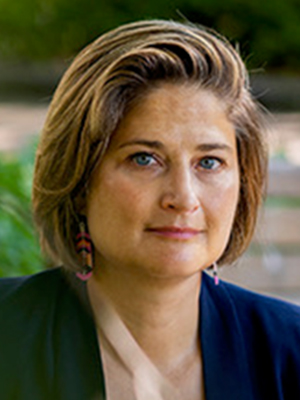Results – Operating Grant: Knowledge Synthesis and Mobilization Grants (Brain Health and Reduction of Risk for Age-related Cognitive Impairment - Knowledge Synthesis and Mobilization Grants)
The Canadian Institutes of Health Research (CIHR) is pleased to share the funding decision for the Brain Health and Cognitive Impairment in Aging (BHCIA): Knowledge Synthesis and Mobilization Grants.
This Funding Opportunity (FO) was launched under the leadership of the CIHR Institute of Aging to support the development of knowledge syntheses, using an equity, diversity and inclusion lens, to assess the current state of knowledge and evidence base, and identify strengths and gaps in research areas related to the promotion of brain health and risk reduction for age-related cognitive impairment.
With the support of our partners, the CIHR Institute of Gender and Health, the CIHR Institute of Circulatory and Respiratory Health, the Azrieli Foundation (including the Canadian Centre for Caregiving Excellence) and the Weston Family Foundation, 16 projects were funded with a total investment of over 1.5 million dollars.
Learn more about progress and outcomes of projects funded through the BHCIA Research Initiative by exploring “Quick Facts”.
The quick facts are taken from the Evidence Summaries, prepared by the research teams for the BHCIA Research Initiative. If you would like to receive the full Evidence Summary, please email BHCIA-SCTCV@cihr-irsc.gc.ca.
Notice

Cindy Barha, University of Calgary, Alberta
“Prescribing movement to promote brain health in perimenopausal and early postmenopausal women”
Quick Facts
- Engaging in movement (physical activity and exercise) is beneficial for brain health during perimenopause and early postmenopause. However, high quality studies are still lacking; therefore, the most effective type and dose of movement for bolstering brain health is not known.
- A scoping review was conducted to build and disseminate evidence-based knowledge about the relationship between human movement (i.e., exercise, physical activity) and brain health in the critical windows of perimenopause and early postmenopause.
- Across this review, physical activity and exercise levels were associated with better cognition.
- This project’s target audience was individuals who will or have experienced menopause.
- The knowledge users of this project are community members, clinicians, and researchers.

Mark T Bayley, University Health Network, Ontario
“Who is Caring for the Caregiver? Understanding Quality of Life and Mental Health Outcomes in Caregivers of Persons with Brain Injury”
Quick Facts
- Family caregivers of people with brain injury face significant daily challenges related to caregiver burden and stress that are not sufficiently addressed by the healthcare system, leading to burnout, poor brain and mental health outcomes, and low quality of life.
- There are few caregiver-focused resources and services that treat the caregiver holistically.
- The findings from this project indicate that elements of health system reform, policy change, and awareness raising will be required to address the lack of support for brain injury caregivers.
- Key knowledge users for this project include government decision-makers and policymakers, health system planners, community service providers, and clinicians.

Kiffer G Card, Simon Fraser University, British Columbia
“Promoting Cognitive Wellbeing in Seniors Through Intergenerational Befriending Interventions: Developing and Tailoring the CompanionLink Program”
Quick Facts
- Social inclusion and cognitive health are deeply interconnected. Addressing cognitive impairment through tailored befriending interventions, ethical practices, and volunteer support enhances the quality of life for seniors while fostering meaningful social connections.
- The population of interest of this project includes seniors experiencing cognitive impairments or decline, as well as the volunteers and staff supporting them through befriending programs.
- Key knowledge users for the results of this project are befriending volunteers, program developers, healthcare providers, social service organizations, and policymakers focused on aging populations and dementia care.

Habib Chaudhury, Simon Fraser University, British Columbia
“Developing Knowledge Mobilization Strategies to create Dementia-inclusive Neighbourhood for Community Access, Participation, and Engagement”
Quick Facts
- This project aims to raise awareness about mobility and social participation issues of people living with dementia in the community, and engages various community partners, e.g., municipalities, community organizations, people living with dementia and care partners.
- The populations of interest of this project are people living with dementia and their care partners.
- Through two world cafés, key knowledge users were reached including people living with dementia, care partners, community-based organizations, and municipal partners. Through focus groups and environmental audits, this project reached municipalities that have dementia-friendly action plans.

Anna R Gagliardi, University Health Network, Ontario
“Culturally-safe dementia risk reduction for immigrant women”
Quick Facts
- Culturally-tailored dementia awareness education sessions can improve dementia knowledge and reduce misperceptions among ethno-culturally diverse women. Further research evidence is needed to establish ideal intervention design and confirm impact among larger groups of ethno-culturally diverse women.
- The population of interest of this project are ethno-culturally diverse or immigrant women, who are at greater risk of dementia due to multiple interacting factors.
- The key knowledge users this project is trying to reach are healthcare professionals, policymakers, and public health program planners who develop culturally-safe policies, clinical guidelines, and public health initiatives for dementia risk reduction.

Marie-Pierre Gagnon, Research Center on Sustainable Health, Quebec
“Engagement des personnes âgées envers les technologies de santé numérique : Un examen de la portée systématique”
Quick Facts
- Les personnes âgées vivant avec des troubles cognitifs peuvent s'engager envers les technologies numériques en santé.
- La population d'intérêt de ce projet est constituée des personnes âgées vivant avec des troubles cognitifs.
- Les principaux utilisateurs des connaissances visés par ce projet sont les décideurs politiques, les organismes financeurs, les développeurs de technologies numériques en santé, les concepteurs d'interventions numériques, les chercheurs, ainsi que les personnes âgées vivant avec des troubles cognitifs et leurs proches, sans oublier les centres de santé et de services sociaux.

Zahra S Goodarzi, University of Calgary, Alberta
“LIFE (Lifestyle Interventions to Fend off dEmentia): A Systematic Review and Network Meta-Analysis of Lifestyle Interventions to Prevent Dementia.”
Quick Facts
- Prevention of dementia is the most important strategy that can be taken to reduce the impact of this neurodegenerative disease given there is no widely efficacious treatment to reverse neurodegeneration.
- The aim of this project is to spread the results to the general public, dementia organizations, health authorities, physicians, and health care providers.
- This project is the first comprehensive systematic review and network meta-analysis of lifestyle interventions for the prevention of cognitive decline and dementia.
- Primary outcomes examined changes in cognition. Of 138 studies identified, 43 studies showed statistically significant findings for primary outcomes.
- Lifestyle interventions are accessible and low risk to implement and have efficacy in prevention of dementia in cognitively well persons.

Emily A Haigh, University of Victoria, British Columbia
“Bridging Indigenous and Western Knowledge for Enhanced Brain Health: Synthesizing and Mobilizing Findings on Strengths-based Psychological Support and Psilocybin in Lifestyle Approaches for Age-related Cognitive Impairment Reduction”
Quick Facts
- Research suggests that Indigenous populations experience modifiable risk factors for dementia at significantly higher rates than their non-Indigenous counterparts. By 2050, the number of Indigenous people with dementia is projected to increase by 273%, compared to a 187% increase in the overall population.
- To better understand and reduce the disproportionate burden of dementia linked to these factors, research must adopt a culturally and contextually strength-based approach.
- The objective of this project was to center Indigenous perspectives within a process of knowledge gathering, synthesis, and sharing. Research was guided by Indigenous methods, including the formation of an advisory circle composed of Indigenous Elders and knowledge users, who led ceremony, and participated in sharing circles.
- Collaborative research with Indigenous knowledge users is essential to promoting health and well-being. Such partnerships may be useful for promoting community-to-community knowledge mobilization around high-quality healthy aging.

Matthias Hoben, York University, Ontario
“Adult DAy Programs and Their effects on individuals with Dementia and their Caregivers (ADAPT-DemCare): Developing program theories on the how and why”
Quick Facts
- Studies examining effects of adult day programs on persons with dementia and their family/friend caregivers have methodological limitations and often disagree on whether day programs lead to certain effects.
- Pathways explaining caregiver outcomes are less differentiated than pathways explaining persons with dementia outcomes, pointing to critical knowledge gaps.
- Key health systems interventions to improve the effects of day programs include ensuring access to a social worker to support caregivers, and sufficient staffing (including access to nurses) to improve care for clients.
- Target knowledge users for the findings of this project are government/health system decision makers, day program managers/staff, Alzheimer Societies and caregiver organizations, persons with dementia and their caregivers.

Osnat Melamed, Centre for Addiction and Mental Health, Ontario
“Helping Women with Diabetes Quit Smoking: A Gender-Informed Approach to Brain Health”
Quick Facts
- Promoting smoking cessation among women is particularly crucial for protecting brain health. This knowledge is urgently needed to support cessation efforts in women with diabetes mellitus (DM), given their high risk of vascular cognitive impairment (VCI).
- Women face greater challenges in quitting smoking compared to men due to a combination of biological (sex‐related) and societal (gender‐related) factors.
- The knowledge synthesis conducted as part of this project highlights a woman‐informed approach that addresses both sex‐ and gender‐related barriers to quitting. As such, it is applicable to other areas of clinical practice that support women with chronic illnesses (e.g., women with heart disease who smoke).
- The key knowledge users for the findings of this project are Diabetes Action Canada organization, women with diabetes who smoke, and healthcare providers.

Laura E Middleton, University of Waterloo, Ontario
“Beyond dementia prevention: Understanding Impact and Knowledge Gaps related to Lifestyle Interventions for People with Dementia”
Quick Facts
- This project summarized results of studies of physical activity and nutrition interventions among people living with dementia in the community.
- Physical activity can improve the fitness and function of people living with dementia and how independent people living with dementia are in their daily activities.
- Nutrition programs and services can improve nutritional status of people living with dementia.
- Few studies reported detailed descriptions of their participants such as ethno-cultural or language group, urban versus rural location, gender identity, or sexual orientation so recommendations cannot be made specifically to these subgroups.
- Since few studies examined the impact of physical activity or healthy eating on quality of life, more research in this area is needed.
- Knowledge users engaged in interpretation and production of knowledge products: people living with dementia, care partners, Alzheimer Society, healthcare professionals, and researchers.

Tatyana Mollayeva, University Health Network, Ontario
“A PROGRESS-Driven Approach to Cognitive Outcomes after Traumatic Brain Injury: Advancing Equity, Diversity, and Inclusion through Knowledge Synthesis and Mobilization”
Quick Facts
- Traumatic brain injury (TBI) is a common injury that affects people of all walks of life, but it may affect each person differently based on their unique characteristics and life circumstances.
- This project explored how social, economic, and cultural factors affect brain health outcomes after TBI.
- Prior knowledge syntheses of studies involving people with TBI were updated and data for future research using machine learning is being prepared. Additionally, a priority setting survey was conducted with knowledge users: persons with TBI, their family and friends, healthcare providers, researchers, and staff/leaders in brain health organizations.
- The results will inform equitable research, policy, and practices.

Aleksandra Pikula, University Health Network, Ontario
“Understanding how, why and for whom Lifestyle Medicine Interventions work for the management of Hypertension as a Modifiable Risk Factor to reduce Stroke and Vascular Cognitive Impairment & Dementia: A Realist Review”
Quick Facts
- The mechanism by which complex Lifestyle Medicine (LSM) interventions work is influenced by:
- The intervention being comprehensive, structured, culturally tailored and focused on education and counselling on the LSM pillars and stroke risk reduction through blood pressure management delivered through various mediums.
- The provision of interventional resources to support persons whose social and structural determinants of health are compromised in adopting the intervention recommendations.
- The formal training of facilitators/interventionists.
- Participants’ characteristics and social and structural determinants of health.
- The populations of interest for this project are younger, middle-age and older adults as well as clinicians, scientists, key stakeholders and policy makers.
- Key knowledge users for the results of this project are clinicians, clinician investigators, researchers, policy makers, government, non-research partners, and persons with living experience.

Natasha Rajah, Toronto Metropolitan University, Ontario
“Brain Resilience and Diversity in Aging and Dementia: A collaboratory for promoting equity in brain health research”
Quick Facts
- This project created an international Collaboratory for the study of Brain Resilience in Aging and Dementia and a 2-day symposium in May 2024 that was focused on what is known and unknown about the influence of race, ethnocultural diversity, social and structural determinants of health (SSDH) and sex, gender on brain resilience in aging and dementia.
- The key knowledge users for the results of this project are researchers, funding agencies, and think-tanks interested in understanding how to integrate measures of sex, gender, and diversity in cognitive and clinical neuroscience of aging research.
- Attendees at the symposium included key knowledge users and People with Lived and Living Experience, and researchers. Thus, the project was successful in reaching target stakeholders.

Eric E Smith, University of Calgary, Alberta
“Empowering Individuals at Risk for or Living with Vascular Cognitive Impairment: A Co-Developed Video Series Promoting Engagement, Prevention Strategies, and Self-Management”
Quick Facts
- There is a public interest in learning about dementia and its risk factors, and measures that can be taken to prevent or slow the progression of dementia and associated conditions. Secondly, there’s a limited amount of accurate and applicable information available that’s suited to people with lived experience of dementia, care partners, or healthcare providers.
- The populations of interest for this project include people with lived experience of vascular cognitive impairment (VCI) and dementia; care partners of those affected by vascular disease, VCI, or dementia; individuals concerned about their vascular health or that of someone they knew; and health care providers.
- Key knowledge users this project aims to reach are medical schools and community non-profit organizations with mandates to increase public awareness of topics related to brain health and the prevention, diagnosis, and treatment of diseases of the heart and brain.

Junqiang Zhao, Waypoint Centre for Mental Health Care, Ontario
“Shared Decision-Making with the Aging Populations in Forensic Mental Health Settings: A Knowledge Synthesis and Research Priority Setting Study Using an Integrated Knowledge Translation Approach”
Quick Facts
- Patient engagement in Forensic Mental Health Care (FMH) has gained increasing recognition and has been incorporated into various FMH programs through diverse approaches. However, its implementation is hindered by significant multilevel barriers, requiring coordinated efforts from FMH policymakers, organizational leaders, and professionals to facilitate its integration and normalization into routine practice.
- The population of interest of this project is patients in FMH. This group consists of individuals with mental health conditions who have been involved in the criminal justice system, often being deemed not criminally responsible or unfit for trial.
- The key knowledge users for the results of this project are FMH professionals and patients, organizational leaders, and policymakers.
- Date modified:
